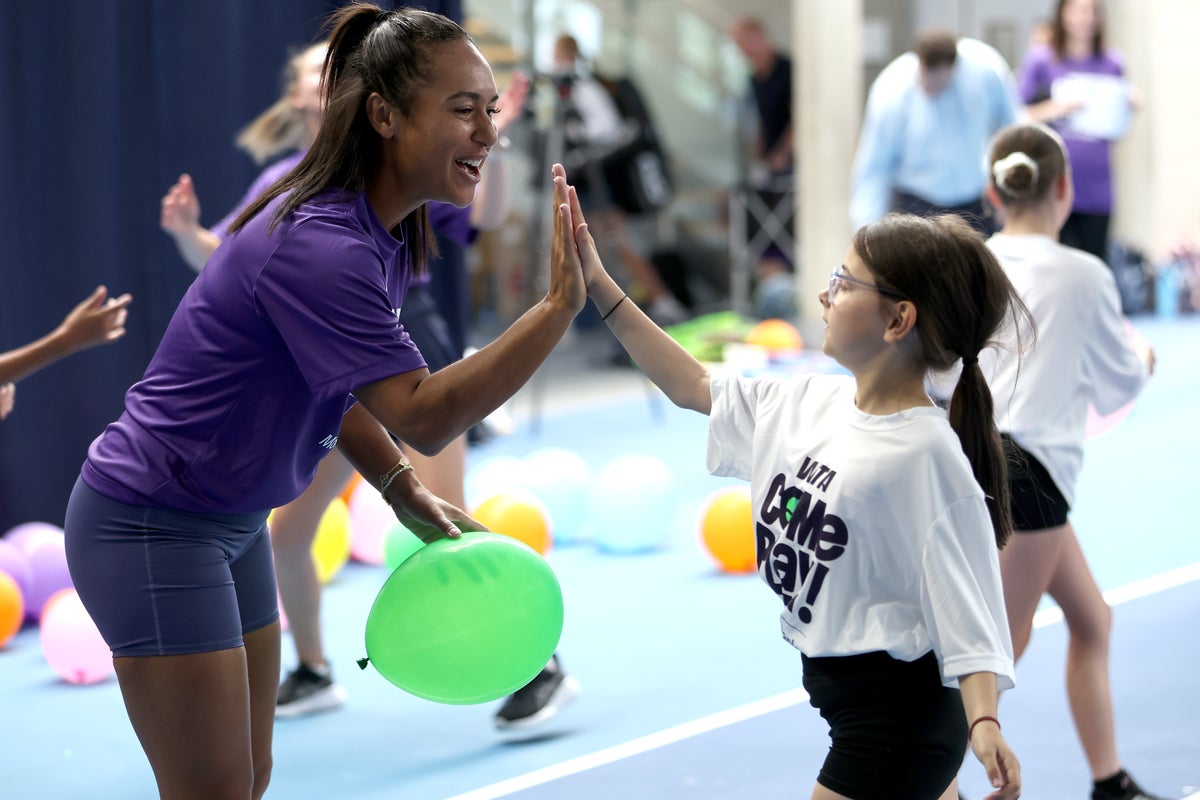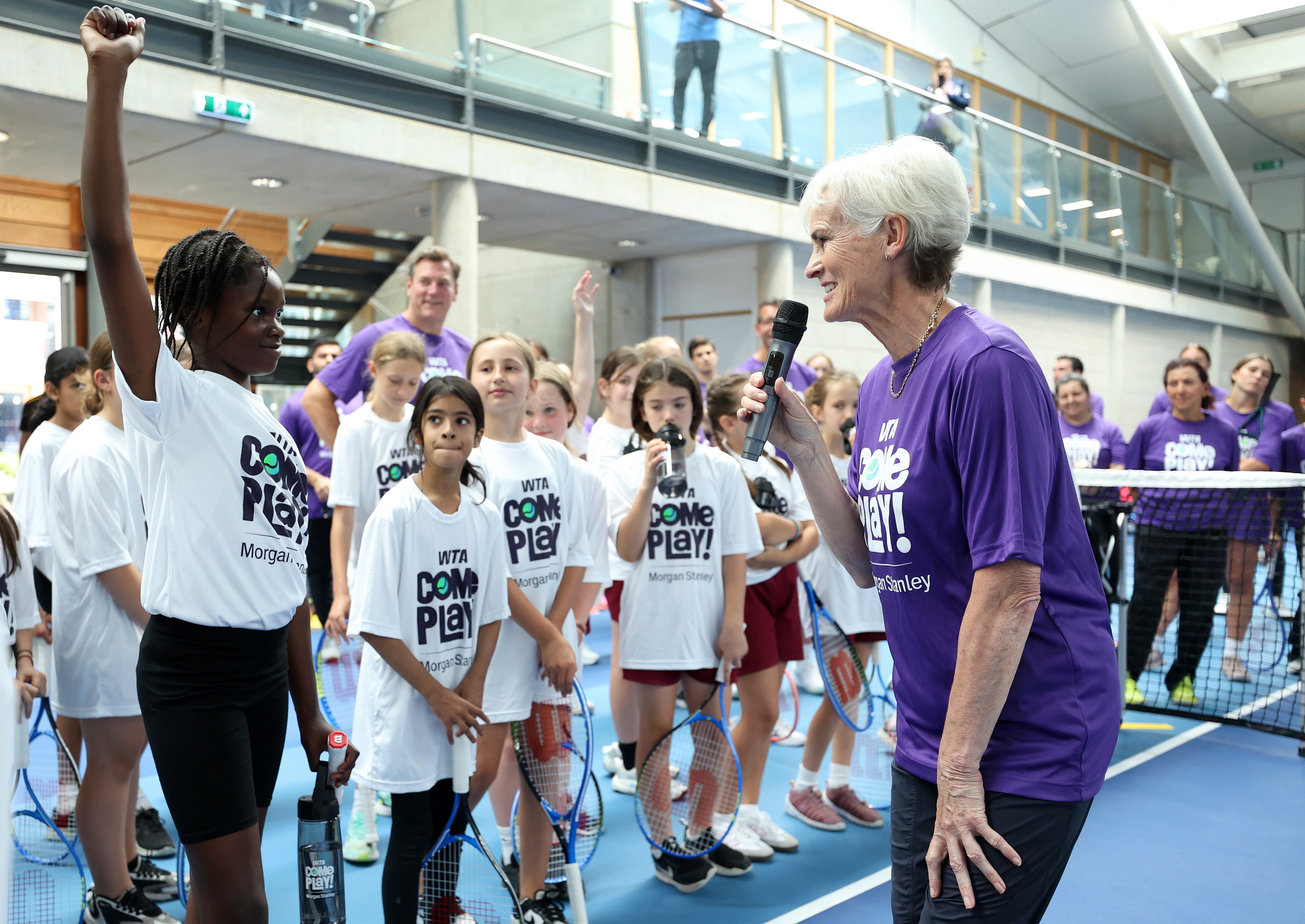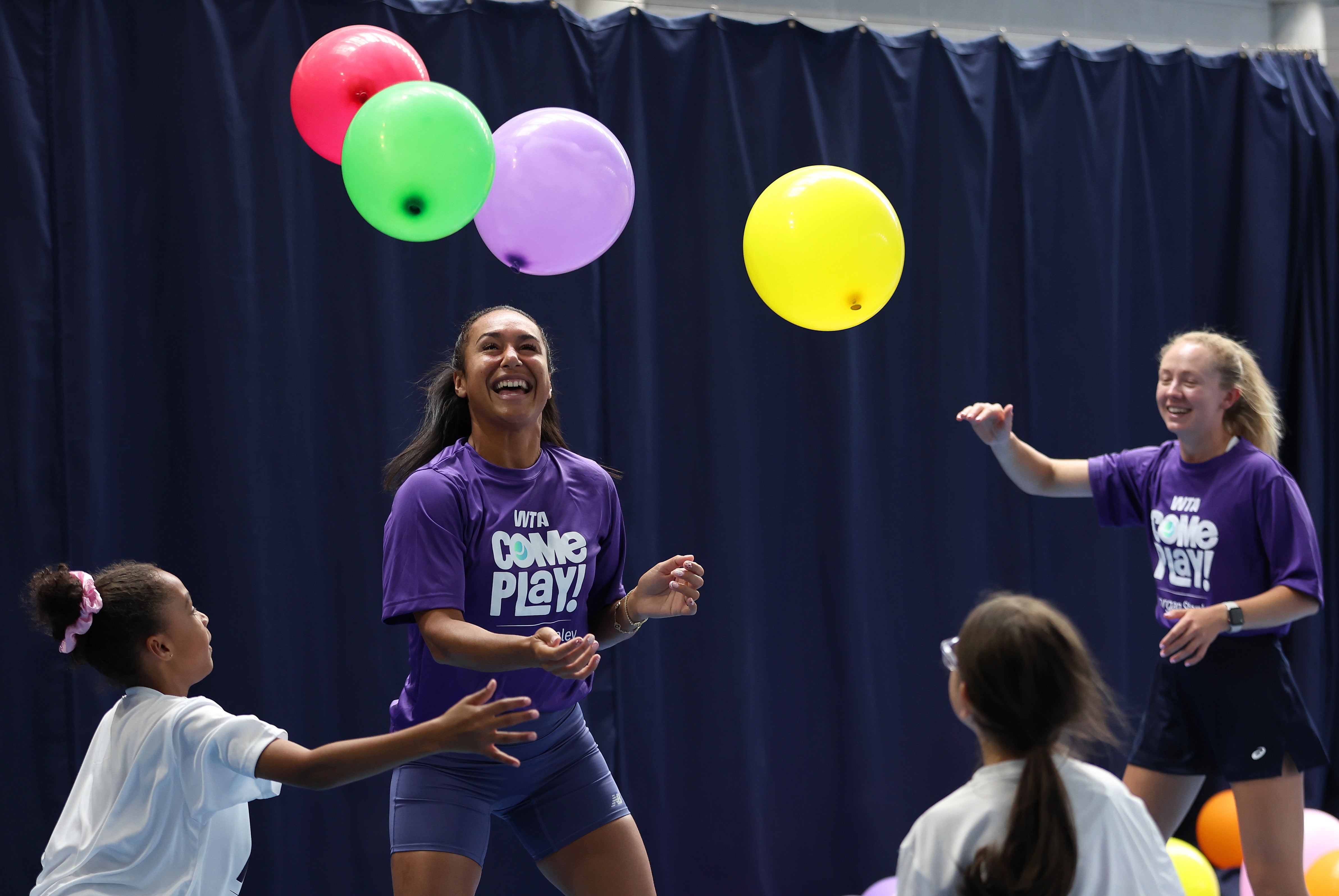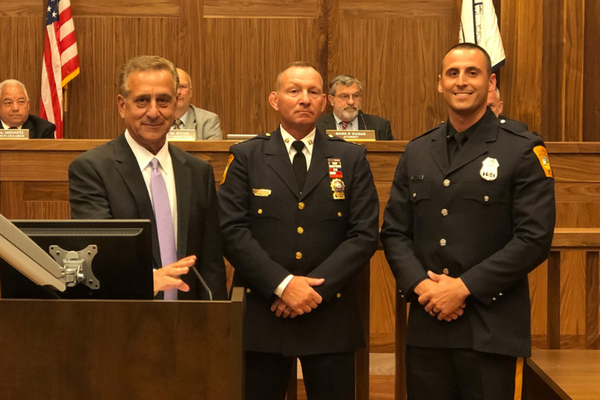
With only a couple of days to go before the start of Wimbledon, you might expect the 128 main-draw players to be hunkered down at Aorangi Park, getting in some practice and a feel for the grass. Those higher up the pecking order might be breaking in the surface on Centre Court.
But for a handful of WTA (Women’s Tennis Association) players, their final Friday before Wimbledon is spent a few miles away at the National Tennis Centre in Roehampton, introducing some potential stars of the future to the world of tennis.
One of those is former world No 38 and British No 1 Heather Watson, while recent Queen’s finalists Tatjana Maria and Amanda Anisimova and former US Open runner-up Leylah Fernandez add to the star power of the event. The quartet are in Roehampton for the WTA Come Play tennis outreach programme, now in its seventh year, which partners with two UK-based foundations to encourage young girls to get into tennis.
Leading the session is coach Judy Murray, one of few people who could corral more than 50 excitable youngsters into something vaguely resembling order. A huge team of volunteers are on hand as the girls – ranging in age – play with balloons, ribbons, and racquets themselves, practising a range of skills needed in tennis.
Watson has been part of the Come Play initiative, and others like it, for some time. “I absolutely love getting involved,” she tells The Independent in a quiet corner away from the shrieks of laughter on court. “Especially with children from underserved communities, that’s my favourite place to give back.
“Growing up, I had Tim Henman visit Guernsey [where Watson is from] once to do an event quite similar to this, and [I know] what an impact it had on me from a young age. I’ll remember it forever. So I really hope these girls remember this, have fun, want to stay involved in sport, be with their friends, because I think it can bring them nothing but good later in life.”
Students from several different schools have come to the National Tennis Centre, under the auspices of the Elena Baltacha Foundation and Murray Play Foundation, who are partnering with the WTA for the initiative.
Tennis is struggling to shift its image as a predominantly white, middle-class sport; the fact that the cost barrier is so high only compounds that. Watson says events like Come Play are “so important and so valuable, particularly because tennis is an expensive sport, and parents may be dissuaded. Most probably wouldn’t have picked up a tennis racquet before. But there are a lot more opportunities coming now, there are a lot more courts being built, and courts for much cheaper prices.”

The 33-year-old is aware it’s an ongoing problem and believes that with more government intervention, those barriers can be lowered. “The more you grow the sport, the more demand there is, and I would love people from all backgrounds to have the opportunity to play, not just the more privileged. Sport is for everyone, not just a particular type of person.”
Watson is also passionate about eradicating barriers for girls in particular to get into tennis. “It’s tougher for girls because as you get older, you start to feel pressure – sport becomes this thing that you think is more for boys,” she says. “You need role models and people to look up to.” That’s where Watson, Fernandez, Maria and Anisimova come in, for the girls at Roehampton today. “Especially because they’re all strong, beautiful, successful women, it’s brilliant for the young generation to see that you can have that – you can still be a girly girl and play sport.”
When Watson was growing up those figures were the Williams sisters. “One of my mum’s friends took me to Wimbledon when I was eight or nine years old,” she recalls, “to watch the final. It was Venus Williams – I actually don’t know who she was playing, I just know she won. She was an idol of mine. I bought her and Serena’s posters and had them on my walls for like, five years.
“It’s huge when you’re growing up. Especially to see women that look like you. That’s [why it’s] so important to bring diversity into it. Venus and Serena [have] brown skin, I have brown skin, I picked them to be my idols naturally – not to mention they are absolutely incredible superwomen!”

Now an elder stateswoman among the current crop of British players, Watson opens her Wimbledon campaign against Clara Tauson of Denmark, the 23rd seed. But she has one eye on a second act, continuing to shape and inspire the stars of the future. She says Judy Murray is another one of her “idols” – “an incredible, strong woman, who’s so passionate about what she does.
“She teaches me so much all the time – she used to be my coach as well on the tennis court – but I have the same sort of passions as her, so I’d love to get involved more with stuff like this after tennis.”
The WTA, alongside global partner Morgan Stanley, brought its community tennis outreach programme WTA Come Play presented by Morgan Stanley to London this week. The initiative, which started in 2018, utilises tennis to positively impact communities and encourages youth, with a focus on girls, of all ages and abilities to lead healthy and productive lives on and off the court. Morgan Stanley and the WTA are teaming up with The Elena Baltacha Foundation as well as the Murray Play Foundation to deliver the immersive tennis clinic







